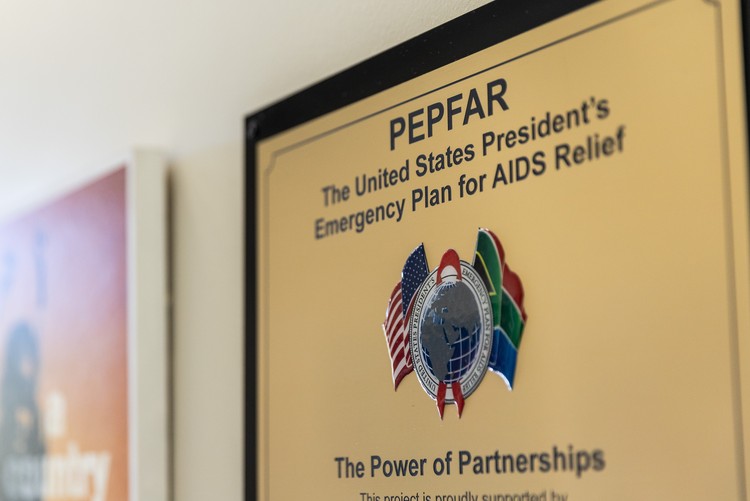Government still has no plan to replace US HIV funding. Health organisations are demanding action
A petition calls on the health department to release an emergency plan
In 2024 the US President’s Emergency Plan for AIDS Relief (PEPFAR) provided about R7.5-billion in funding for health programmes in South Africa. Earlier this year, Donald Trump cut of the funding. Archive photo: Ashraf Hendricks
“We are determined not to let people die,” reads a letter from the Global HIV Treatment Coalition and civil society organisations sent to the presidency and health minister Aaron Motsoaledi. The letter demands that the government gets its act together on a fully costed emergency plan to deal with the loss of HIV funding.
This follows billions of rand for HIV and TB programmes being withdrawn after the Trump administration cut funding for USAID and the US President’s Emergency Plan for AIDS Relief (PEPFAR) in January. In 2024, PEPFAR provided about R7.5 billion to South Africa.
Vulnerable people, known as “key populations” such as sex workers have lost access to vital HIV programmes that delivered ARVs, USAID-funded clinics have closed down, and health workers have been retrenched.
HIV activists say the health department has “not taken concerted action” to address these funding cuts, and that “Parliament, the National and Provincial AIDS Councils, and everyone else in the country are in the dark regarding the emergency plan and action required”.
The letter is signed by Zackie Achmat and Anneke Meerkotter on behalf of the Global HIV Treatment Coalition. About 200 people, including leading activists, doctors and public health advocates, as well as over 70 organisations have endorsed it.
The country’s HIV programmes are also facing a further blow to funding after The Global Fund announced that its allocations would be reduced.
The letter demands that the health minister provides information on the impact of US funding cuts and details of the national and provincial government’s emergency plans. It calls for the government to meet with civil society and health sector leaders to review the plan.
A month ago, activists warned Parliament’s health portfolio committee about the looming health crisis and that people were struggling to access antiretrovirals.
The letter refers to a study which estimates that from 2025 to 2028, the discontinuation of PEPFAR could result in a 29% to 56% increase in new HIV infections, and 56,000 to 65,000 additional AIDS-related deaths.
Neither the presidency nor national health department responded to a request for comment.
In his budget speech in May, the finance minister, Enoch Godongwana, stated that no new allocations are being made to deal with the withdrawal of US funding for HIV-related services. But he stated that such funding may be issued later in the year. We reported at the time:
Officials from the National Health Department have been in negotiations with Treasury over the last few months about securing emergency funding in order to cover the PEPFAR cuts.
The emergency funds could come from Treasury’s contingency reserve, which exists partially in order to cover unexpected funding shortfalls. It may also be financed through borrowing.
The health department’s proposal for emergency funding had apparently been insufficiently detailed. It needed to provide more information about how the money would actually be spent.
We understand that the health department has also put in a separate application to the National Treasury to cover the cuts to research funding by the US. This follows a decision by the US National Institutes of Health (NIH) to effectively cancel grants to researchers in South Africa (see a detailed explanation here). Two large private donors have offered to assist with this if the government puts up a certain amount.
To understand the effects of the US funding cuts, GroundUp and Spotlight made a request on 25 June to the National Health Laboratory Service under the Promotion of Access to Information Act for data going back to 2015, including the monthly number of HIV viral load, CD4, TB and syphilis tests.
Support independent journalism
Donate using Payfast

Don't miss out on the latest news
We respect your privacy, and promise we won't spam you.
Next: Open Secrets report: How big consulting firms are cashing in on the climate crisis
Previous: Late judgments have increased. Here’s what’s being done to fix the problem
© 2025 GroundUp. This article is licensed under a Creative Commons Attribution-NoDerivatives 4.0 International License.
You may republish this article, so long as you credit the authors and GroundUp, and do not change the text. Please include a link back to the original article.
We put an invisible pixel in the article so that we can count traffic to republishers. All analytics tools are solely on our servers. We do not give our logs to any third party. Logs are deleted after two weeks. We do not use any IP address identifying information except to count regional traffic. We are solely interested in counting hits, not tracking users. If you republish, please do not delete the invisible pixel.

